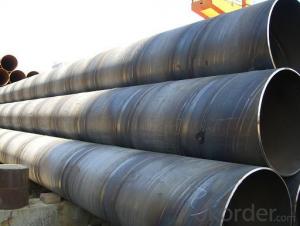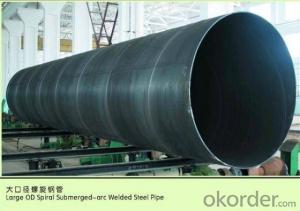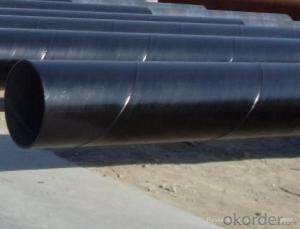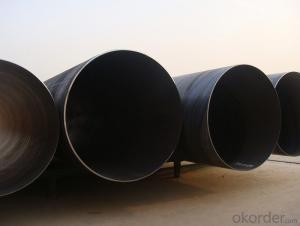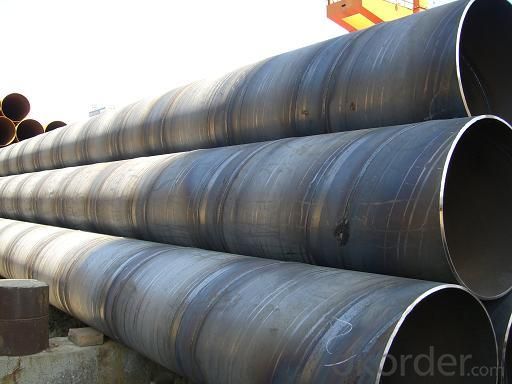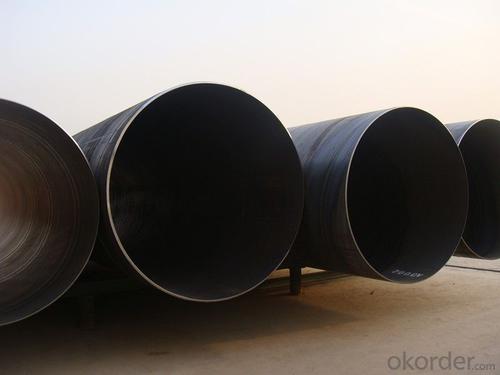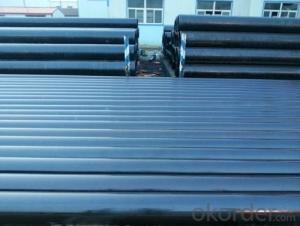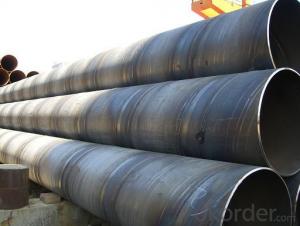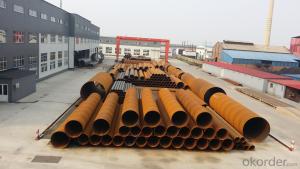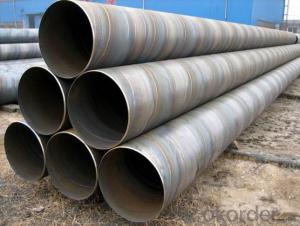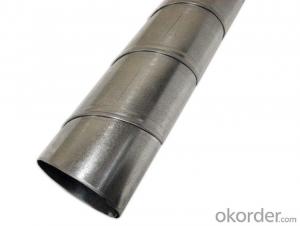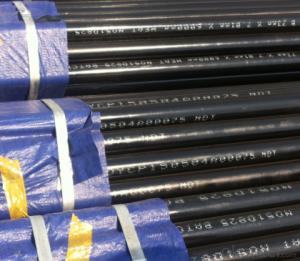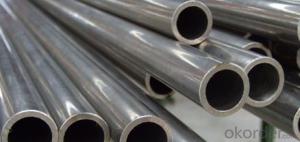SPIRAL CARBON STEEL PIPE API 5L PSL1 36''
- Loading Port:
- China Main Port
- Payment Terms:
- TT OR LC
- Min Order Qty:
- -
- Supply Capability:
- -
OKorder Service Pledge
OKorder Financial Service
You Might Also Like
Packaging & Delivery
Packaging Detail: | standard export packing or as customer's requirement |
Delivery Detail: | within 10 - 30 days |
Specifications
Spiral Welded Steel Pipes and Tubes
1.Material:Q195-Q235
2.Length:1-12m
3.WT:1.0-14mm
4.O.D.:20-273mm
Spiral Welded Steel Pipes and Tubes
Product Description:
1.Material : Q235,Q345,L245,L290,L360,L415,L450,L485,GrB,X42,46,X52,X56,X60,X65,X70,X80,X100
2,Standard: SY/T5037-2000,GB/T9711-2011,API Spec 5L PSL1/PSL2,ASTM A252\A53,ISO3183,DIN17172,EN10217,JIS G3457,AWWA C200,ASTM A139,ASTM A671,ASTM A672
3.Wall thickness: 3.0mm-30mm
4.Outer diameter: φ168mm-3020mm
5,Length: 5m-12m or as your requirement
6,Corrosion protection standard: DIN30670,DIN30671, AWWAC210, AWWA C203, SY/T0413-2002,SY/T0414-2002
7,Application: Oil, gas, natural gas, water pipe, thermal electricity pipe, steel structure engineering, etc
Q195-q345 Material Steel Pipe's Materials
Elements | Chemical Compsition% | Mechanical Property | ||||||
| C% | Mn% | S% | P% | Si% | Yield Point (Mpa) | Tensile Strength(Mpa) | Elongation |
Q195 | 0.06-0.12 | 0.25-0.50 | <0.050 | <0.045 | <0.030 | >195 | 315-430 | 32-33 |
Q215 | 0.09-0.15 | 0.25-0.55 | <0.05 | <0.045 | <0.030 | >215 | 335-450 | 26-31 |
Q235 | 0.12-0.20 | 0.30-0.70 | <0.045 | <0.045 | <0.030 | >235 | 375-500 | 24-26 |
Q345 | <0.20 | 1.0-1.6 | <0.040 | <0.040 | <0.55 | >345 | 470-630 | 21-22 |
- Q: Can steel pipes be used for conveying compressed air?
- Yes, steel pipes can be used for conveying compressed air. Steel pipes are commonly used in applications where high pressure and durability are required, such as in industrial settings. Steel pipes have a high tensile strength and can withstand the high pressures generated by compressed air systems. Additionally, steel pipes are resistant to corrosion, which is important when dealing with moisture in compressed air. However, it is important to ensure that the steel pipes are properly sized and rated for the specific pressure and flow requirements of the compressed air system. Additionally, proper installation and maintenance practices should be followed to prevent any potential leaks or failures.
- Q: What is the difference between steel pipes and plastic pipes?
- Steel pipes are made from a strong and durable metal, while plastic pipes are made from synthetic materials like PVC or polyethylene. Steel pipes are typically used for high-pressure applications and in areas where strength and durability are key factors. On the other hand, plastic pipes are more lightweight, corrosion-resistant, and easier to install. They are commonly used for low-pressure applications and in areas where chemical resistance is important.
- Q: Can steel pipes be used for transporting hazardous materials?
- Yes, steel pipes can be used for transporting hazardous materials. Steel pipes are known for their strength, durability, and resistance to corrosion, making them suitable for handling various types of hazardous substances. Additionally, steel pipes can be designed to meet specific requirements, such as pressure ratings and chemical compatibility, ensuring the safe transport of hazardous materials. However, it is crucial to consider additional safety measures and comply with relevant regulations to minimize any potential risks associated with transporting hazardous materials.
- Q: Can steel pipes be used for hydronic heating systems?
- Yes, steel pipes can be used for hydronic heating systems. Steel pipes are commonly used in hydronic heating systems due to their durability, strength, and ability to withstand high temperatures and pressure. They are also resistant to corrosion, which is important for maintaining the efficiency and longevity of the heating system. However, it is essential to ensure proper insulation and protection against potential expansion and contraction issues that steel pipes may face when exposed to high temperatures.
- Q: What are the different types of fittings used with steel pipes?
- There are several types of fittings used with steel pipes, including elbow fittings, tee fittings, coupling fittings, union fittings, and flange fittings.
- Q: What are the different types of coatings used for external protection of steel pipes?
- There are several types of coatings used for external protection of steel pipes. Some common ones include epoxy coatings, polyethylene coatings, coal tar coatings, and fusion bonded epoxy coatings. Each type of coating offers specific benefits and is chosen based on factors such as the environment, type of exposure, and desired level of protection.
- Q: How are steel pipes used in geothermal energy systems?
- Steel pipes are an essential component in geothermal energy systems as they are used to transport the hot water or steam extracted from the underground reservoirs to the surface. These pipes are designed to withstand high temperatures and pressure, ensuring the safe and efficient transfer of geothermal fluids. Additionally, steel pipes are also utilized in the construction of geothermal power plants, connecting various components like heat exchangers and turbines, facilitating the generation of renewable and sustainable energy.
- Q: How are steel pipes used in the construction of railway tracks?
- Steel pipes are used in the construction of railway tracks as they provide a strong and durable foundation. They are typically used for the support and reinforcement of the tracks, helping to distribute the weight of the trains and ensuring stability. Steel pipes also play a crucial role in drainage systems, allowing for proper water flow and preventing damage to the tracks.
- Q: What are the different grades of steel used in pipe manufacturing?
- There are various grades of steel used in pipe manufacturing, including carbon steel, alloy steel, stainless steel, and duplex steel.
- Q: Can steel pipes be used for air conditioning systems?
- Yes, steel pipes can be used for air conditioning systems. Steel pipes are commonly used in HVAC systems, including air conditioning, due to their strength, durability, and resistance to corrosion. They are used to transport refrigerant and provide structural support for the system.
Send your message to us
SPIRAL CARBON STEEL PIPE API 5L PSL1 36''
- Loading Port:
- China Main Port
- Payment Terms:
- TT OR LC
- Min Order Qty:
- -
- Supply Capability:
- -
OKorder Service Pledge
OKorder Financial Service
Similar products
Hot products
Hot Searches
Related keywords
